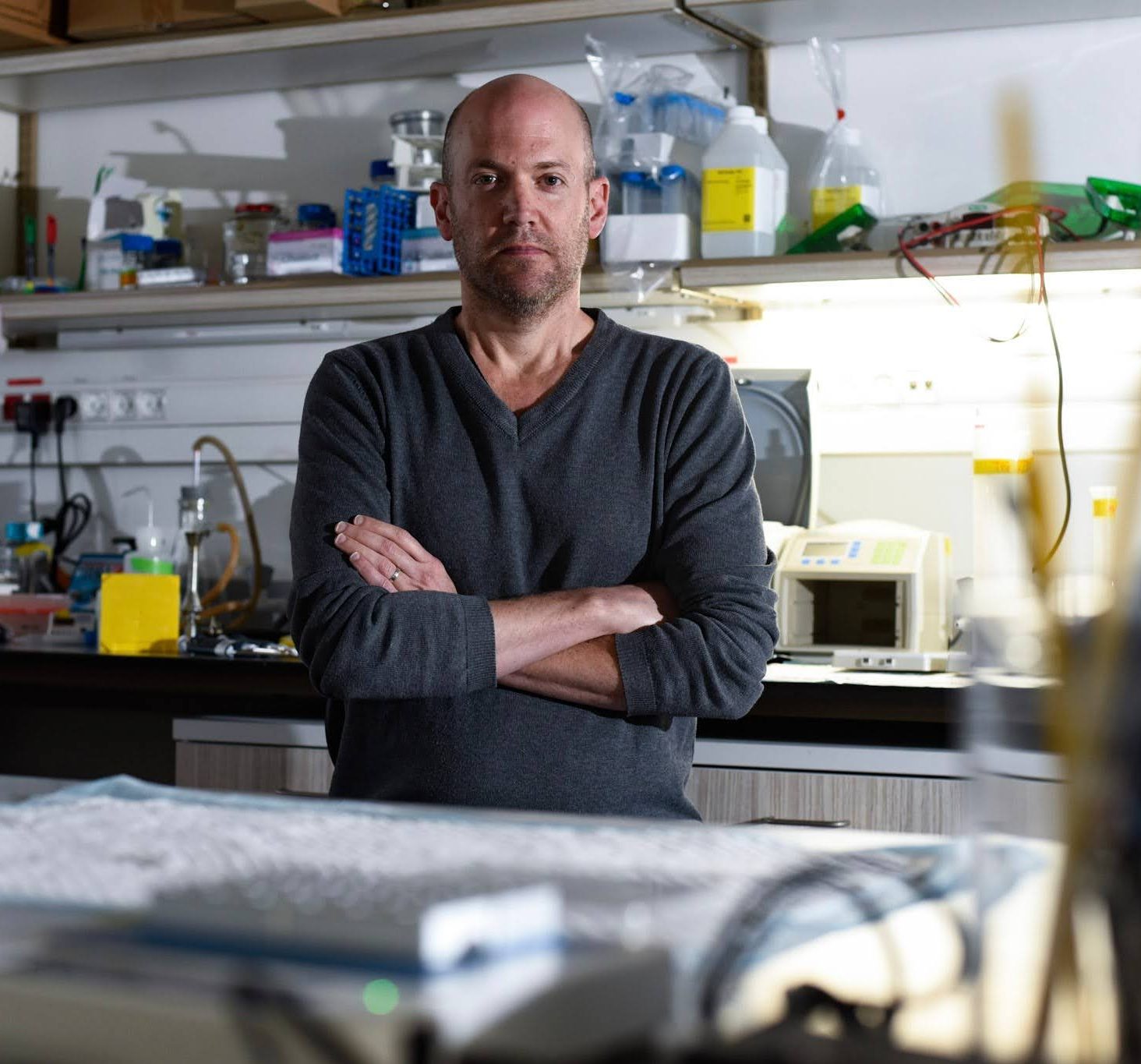FACULTY
Researchers

Raz Palty, PhD, Associate Professor

Calcium ions are central and ubiquitous intracellular signaling entities. Changes in intracellular calcium levels control fundamental biological events, from initiating the mitotic birth of a new cell to marking its end during apoptosis. Intracellular calcium signals in mammalian cells are initiated primarily through opening of calcium channels found either in the plasma membrane (PM) or in the membrane of intracellular calcium stores, i.e., the endoplasmic reticulum (ER). Our lab studies an exceptional cellular process called store-operated calcium entry, whereby the opening of calcium channels in the ER, which leads to depletion of this intracellular calcium store, triggers the opening of calcium channels in the PM.
The classical store operated channel is the Calcium Release-Activated Calcium (CRAC) channel. This channel is formed by STIM and Orai proteins and its activity controls key cellular processes such as gene expression, cell differentiation, secretion, and Ca2+ homeostasis. Calcium signals generated by CRAC channels are particularly important for executing the immune functions of T and B lymphocytes and loss of function mutations in the STIM1 or Orai1 genes leads to a severe form of immunodeficiency in humans.
We are currently pursuing two main research directions. In the first we investigate how coupling between STIM and Orai proteins controls channel opening and how additional interactions with SARAF regulate this process. In the second we develop novel synthetic photo-switchable compounds that control CRAC channel activity by light. We currently explore the usage of such compounds as research tools and as optically controlled drugs.
For these studies we combine genetic, protein and chemical engineering with patch-clamp electrophysiology and high-resolution imaging using total internal reflection fluorescence (TIRF), confocal, and single-molecule microscopy.




